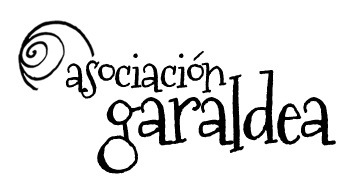Volunteer Activist Campaign in Spain
Be conscious, be responsible: another way to consumption
Background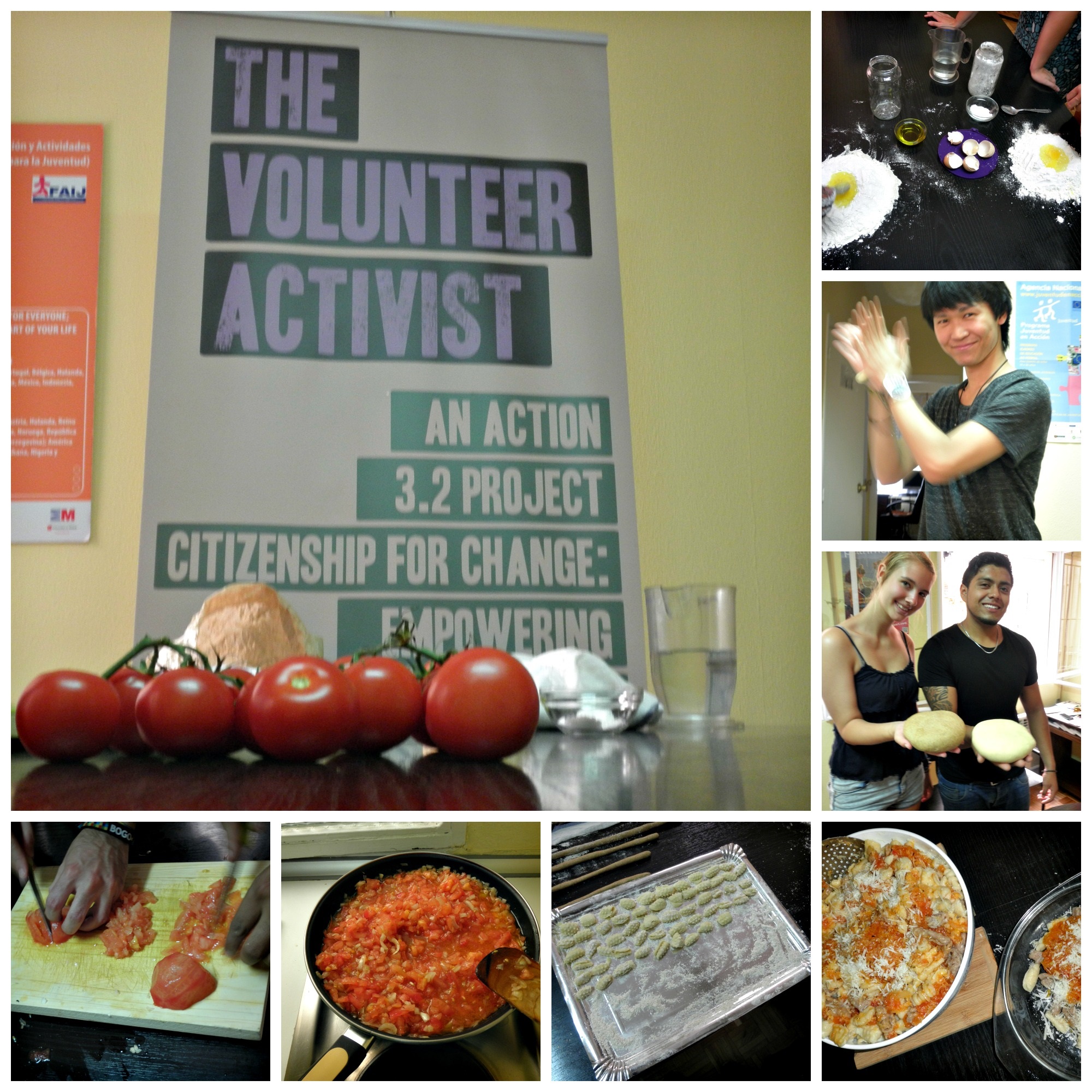
During the past couple fo years actions have shown that another form of consumption is possible, consumption that meets real needs of people and promotes environmental protection and social equity. Every day we need to fulfil our basic needs for food, clothing, housing, transportation, communication, information. For all of this, we use various resources that are offered on the “global Market”, and it is left to us to select each product based on the price, quality, shape and production sites, etc.
About this campaign
The aim of the campaign was to raise awareness about the fact that our current consumption habits are unsustainable. The objective was to provide different insights into new forms of consumption, demonstrate, promote and further their diffusion, to emphasise that even the smallest action counts. A space for reflection was also created so people could rethink their consumption habits and boost alternative and sustainable ways of co-existence on our planet. The issues were addressed through an online campaign, which was supported by two workshops about responsible food consumption, avoiding food waste and learning how to make more of the resources we have. The target audience was people who already followed AFAIJ on the social media, blog and website, but we hoped that we would be able to reach new audiences due to the theme.
The campaign was launched jointly by AFAIJ and Asociación Garaldea, with the following goals:
- Raising awareness about different ways of consumption
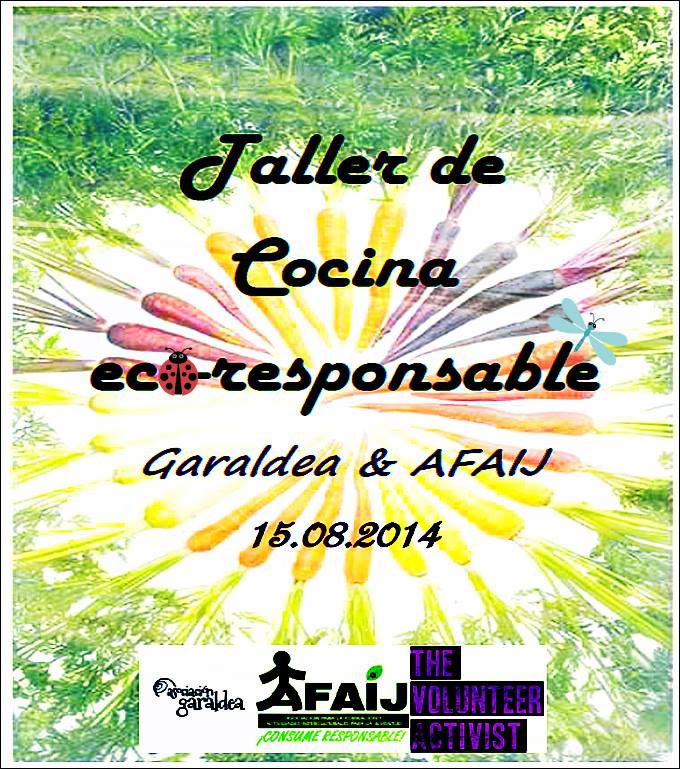
- Creating more responsibility towards the environment and people;
- Encouraging collaboration between organizations working in the field by publicizing their work, giving their activities greater visibility and opening up access to networks.
- Supporting the work of different organizations involved in “social consumption” by introducing them to others and encouraging others to get involved in them through partnerships by volunteering, donations (financial or in-kind) or other forms (time bank, consumption local products, use shared spaces, etc.).
- Creating a digital document/ dossier containing all the information, best practices, and proposals on alternate, responsible consumption.
Most people were reached through social media such as Facebook, the blogs of AFAIJ and Garaldea, and their websites. The participants in the two workshops were reached through Facebook, email or word of mouth. Based on the statistics about 500 people read, commented or liked the articles online, 50 people participated in the workshops and sent pictures for the digital marathon. The statistics of people reading the articles and announcements only indicate the number of people seeing the post and accessing the blog posts, whereas it is hard to say anything concrete about how the articles may have affected or not affected people and their consumption habits.
Internet campaigns:
- Brief introduction of the main topic:http://afaij.blogspot.com.es/2014/06/the-volunteer-activist-be-conscious-be.html
- Platforms and Networks involved with the main topic:http://afaij.blogspot.com.es/2014/07/the-volunteer-activist-be-conscious-be.html
- Visibility of specific activities performed.
- Best practices
- Latest news regarding the main topic
- Workshop “Pasta Fresca” Sesión 1: 27 June at the AFAIJ office:
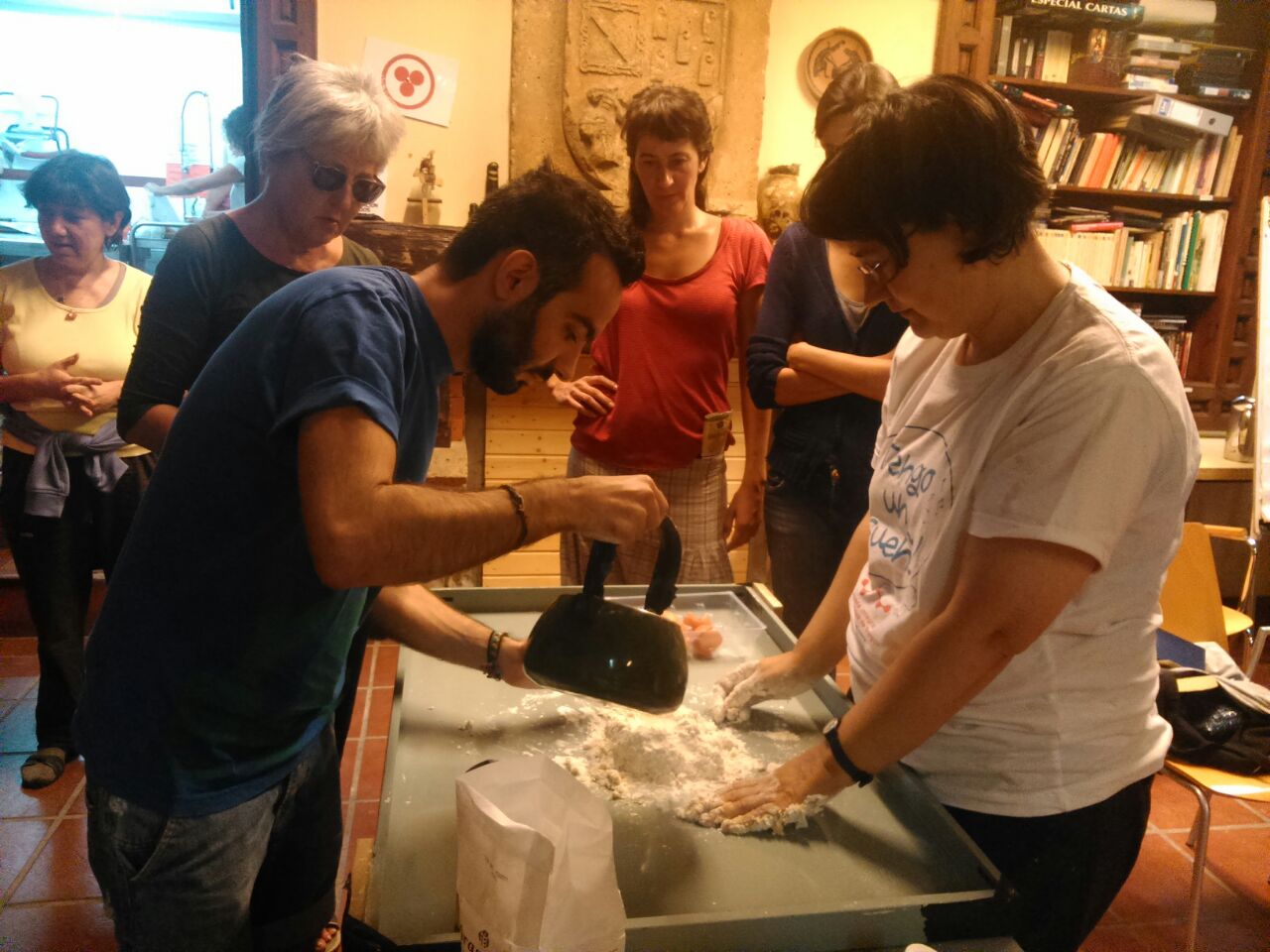
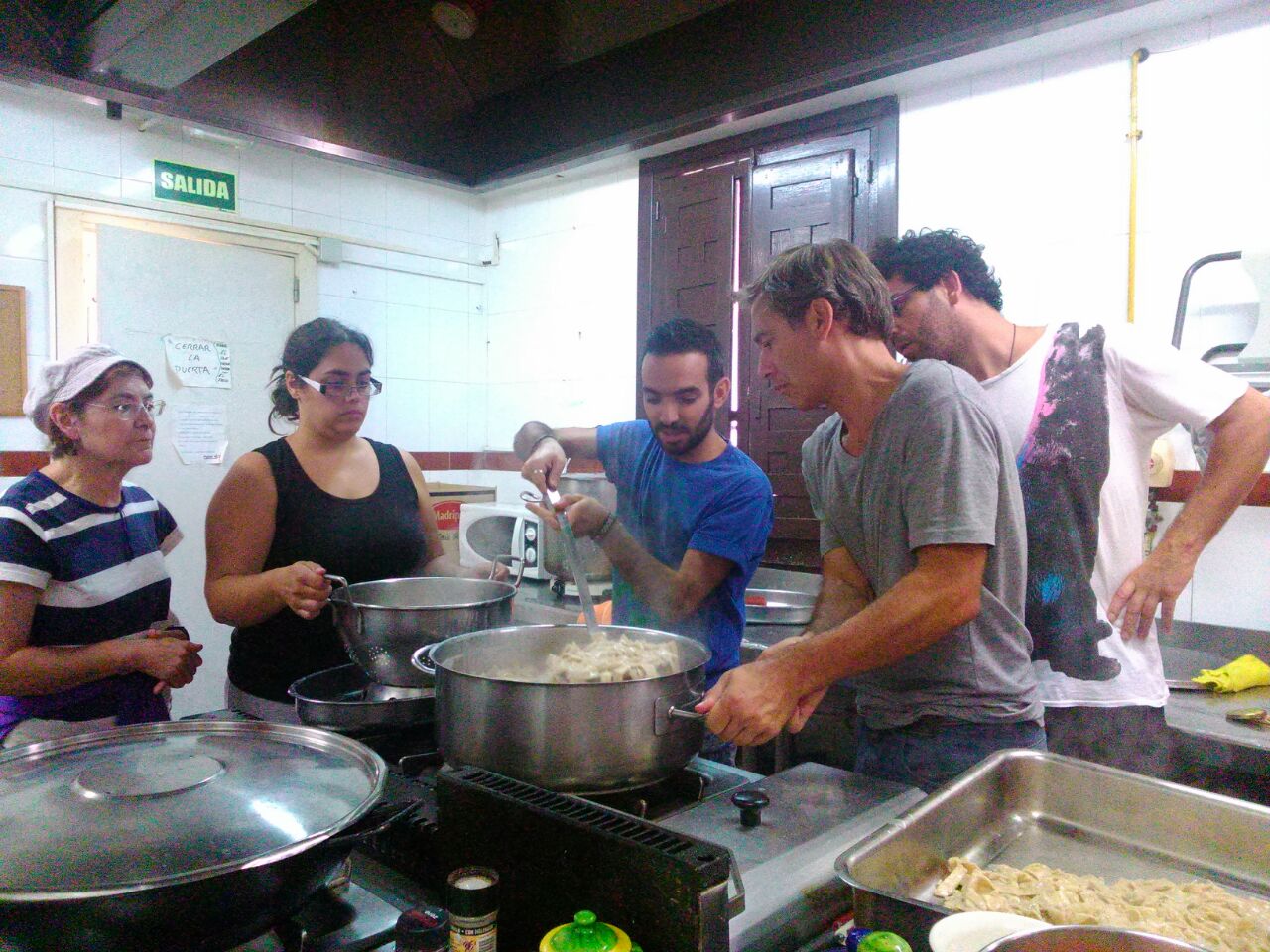
- Workshop about food waste with a group of 30 people on 15th of August. Aim of the workshop is to provide solutions and ideas on how you can avoid food waste and be more aware about this issue.
- Digital Photo Marathon "identifies good practices in your city / town"
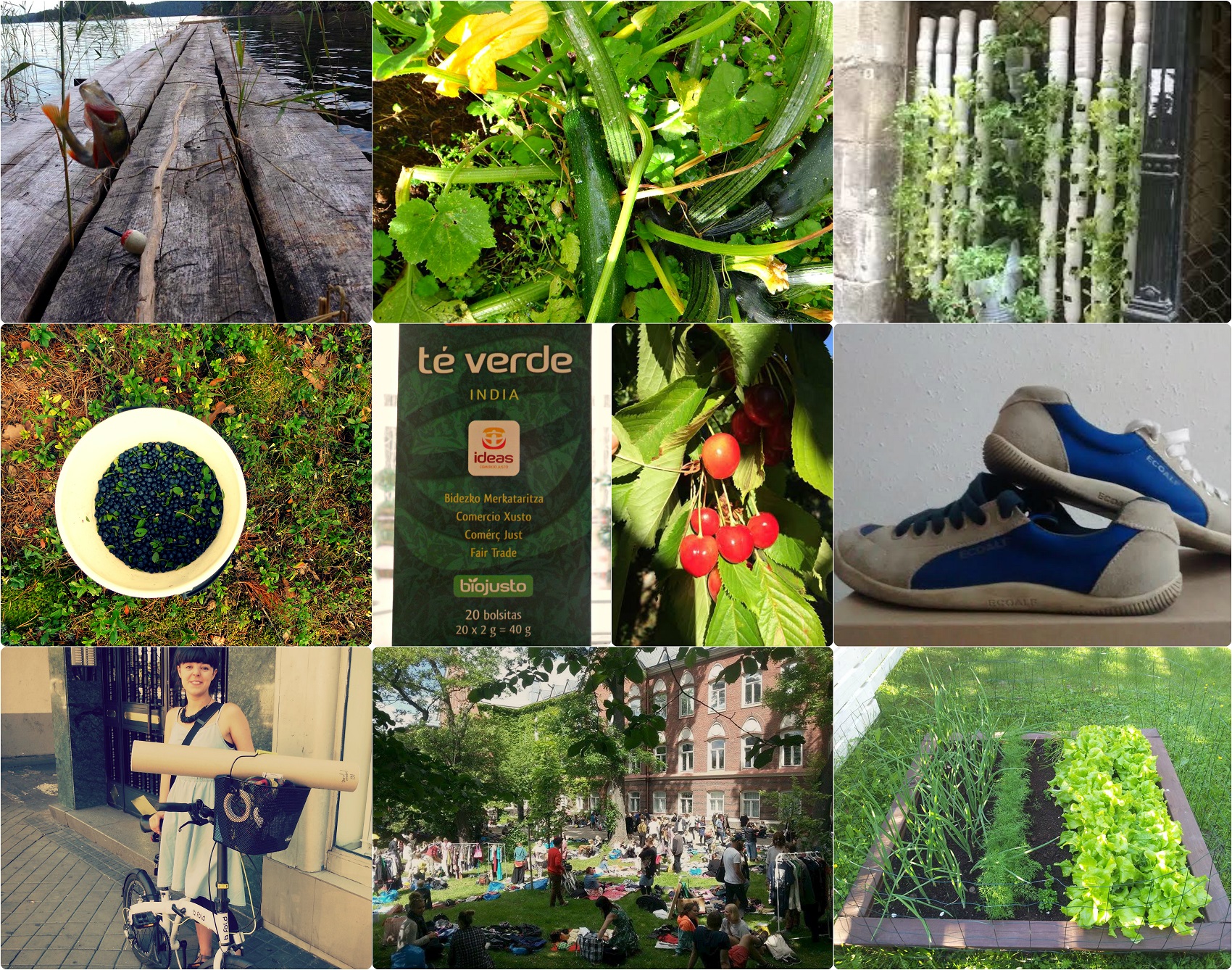
The AFAIJ Blogspot focused on the following themes from July to August 2014:
30.06.2014 Food matters: How even small actions, such as choosing environment-friendly and sustainable products when buying groceries, can make a difference in saving the environment.
02.07.2014 Gnocchetti Sardi: The waste of resources related to industrially produced pasta, and how one can help reducing the waste by making your own fresh pasta with locally produced ingredients.
07.07.2014 You decide: As consumers, we have the power to choose and favour certain brands and products. Our daily choices can therefore be seen as a tool towards responsible and sustainable consumption.
10.07.2014 Farming in the cities: Urban farming is part of the emerging trend of initiatives that seeks to change the ways in which food is produced and consumed, in a more diversified, low-carbon and less oil dependent direction. The idea behind urban farming is to produce vegetables locally and organically, thereby minimizing the use of resources and their influence on the environment.
16.07.2014 Food waste Close to a third of the food we produce ends up in the trash. Food production, transportation, and preparation cause considerable emissions. If the prepared food ends up in the trash, emissions are generated in vain.
18.07.2014 What´s lurking in your wardrobe? Globalization has made it possible to produce relatively cheap clothes. As a result, today’s fashion is sometimes referred to as “throwaway” or fast fashion, as clothing now appears more disposable. However, extending the lifespan of clothes is essential in order to ensure sustainability of the clothing production and consumption. You can start extending the lifespan of your clothes by following the three R’s: Reduce, Re-use, Recycle.
12.08.2014 Different shades of (green) travel International tourist arrivals have increased from 25 million in 1950 to 1087 million in 2013. The use of natural resources and consequences for the environment has increased simultaneously. UNWTO has made a simple and short guideline for becoming a responsible, green traveler: respect local culture, buy local, save energy, use public transport and protect heritage.
“As a tourist, remember that your actions are an opportunity for good!” (UNWTO)
13.08.2014 Barter: Looking into the ‘money-free’ payment concept ‘barter’, used by the Spanish association Garaldea. By not using money within the association, Garaldea ensures that everyone has a fair chance to join the association, regardless of their financial status. Instead, in exchange for using the facilities offered by the association, people swap goods and services, and engage in Garaldea’s many projects; e.g. gardening, helping in the kitchen, masonry, etc.
Learn more about the organisations:
AFAIJ: https://www.facebook.com/AFAIJ and http://afaij.org/
Asociación Garaldea: http://asociaciongaraldea.wordpress.com/

